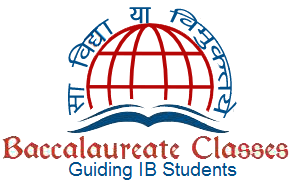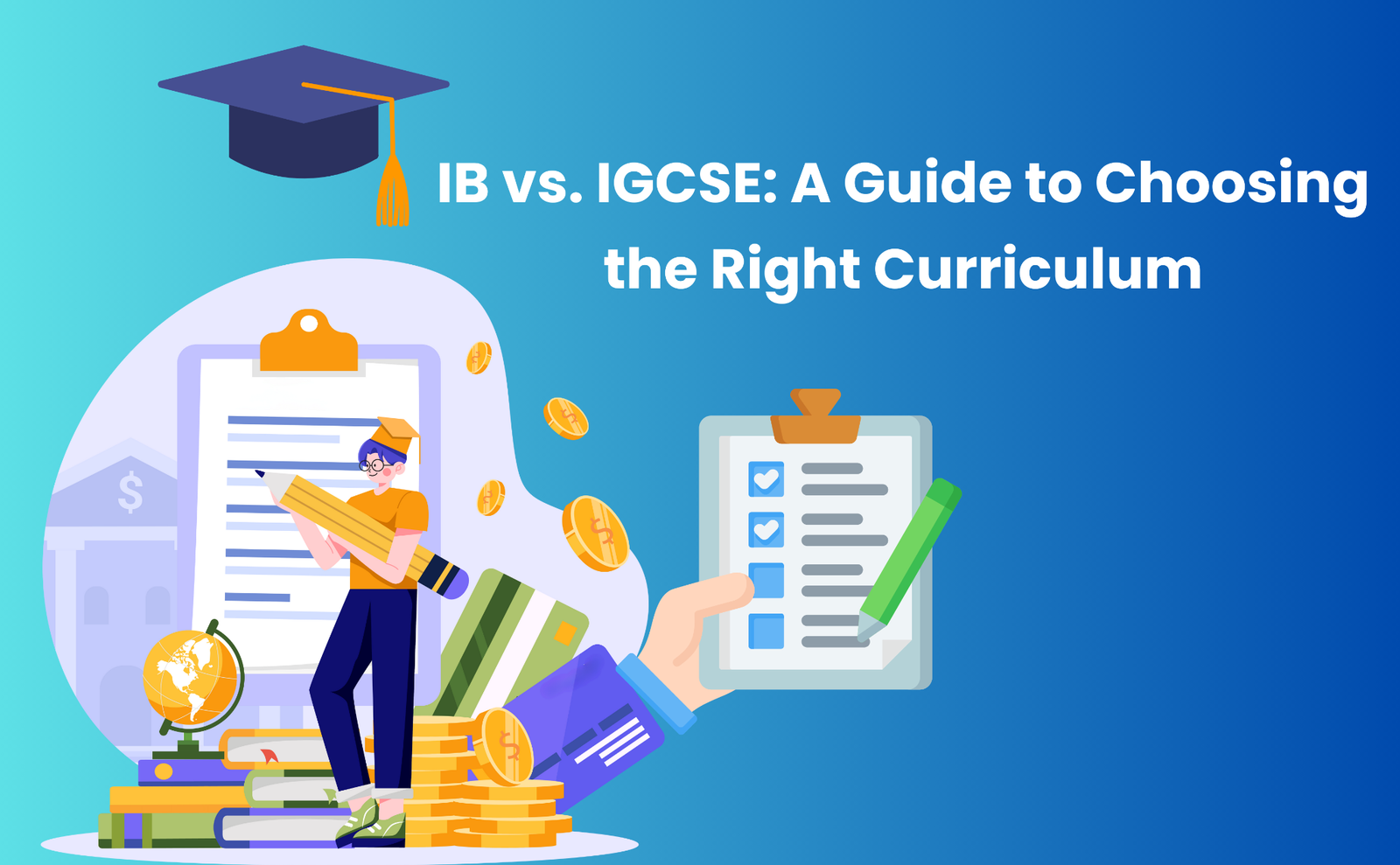OUR BLOG
IB vs. IGCSE: Charting Your Course: A Guide to Choosing the Right International Curriculum
The Indian educational system supports several types of patterns to impart knowledge to kids. Apart from the standard boards in our country, there are also other kinds of boards similar to the Central Board of Secondary Education (CBSE). The unique educational systems include the International Baccalaureate (IB) system and the IGCSE (International General Certification of Secondary Education) system.
Today, we aim to explore the key differences between IB vs IGCSE for high school. Keep scrolling for differences between IGCSE vs IB university requirements.
Which is better, IB or IGCSE?
Choosing between IB and IGCSE can be challenging, but with the right Baccalaureate classes. IB Tuition, students can navigate the IB curriculum effectively and build a strong academic foundation The International Baccalaureate System is known for its unique learning opportunities. Students opting for the IB board are not limited to theoretical knowledge and gain insights into practical implementation. Thereby, the curriculum focuses more on creativity and extracurricular activities. As for their programmes, it offers primary and middle year programs for students in the age groups 3–11 years and 12–16 years.
On the other hand, the International General Certification of Secondary Education follows a specific curriculum under the supervision of Cambridge International Examinations (CIE). Students aged between 11-14 can attend Cambridge Lower Secondary, while those belonging to the age group 14-16 are eligible to attend Cambridge Higher Secondary. Further, the levels are shifted to AS for 11th grade and A for 12th grade.
Both systems are recognized by international institutions across the globe. When choosing which is better, IB or IGCSE, decide what kind of education you want to enroll your child in. If you’re looking for a traditional approach with a proper syllabus and curriculum, you can opt for IGCSE. However, if you’re looking for innovative experience and practical knowledge, IB is a good choice.
Difference between IGCSE and IB curriculum
We have understood that IB Board aims at practical knowledge and IGCSE is more focused on structure and exam pattern. Let us look at further details:
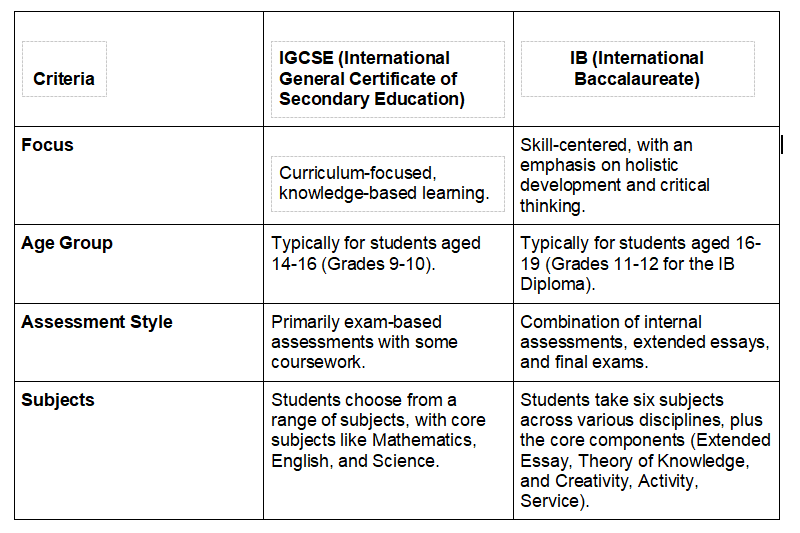
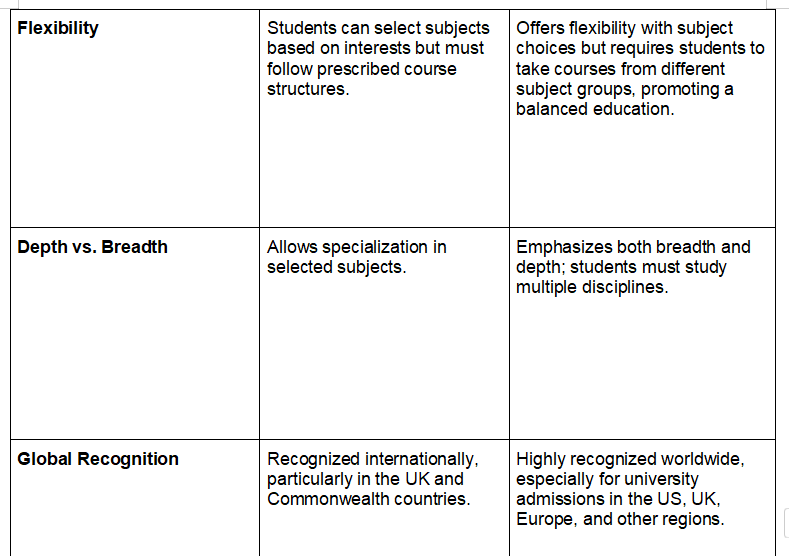
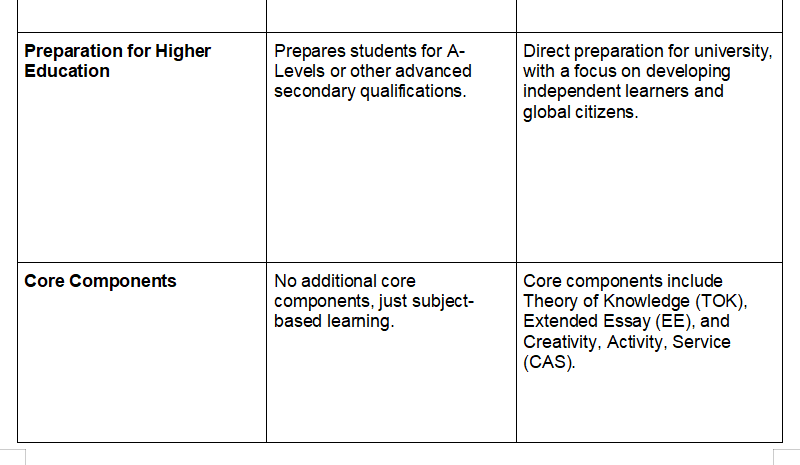
The tables provide a brief overview of the IGCSE and IB systems and their different approaches to curriculum and teaching.
IGCSE vs IB university requirements
When comparing the IGCSE and IB curriculum in terms of university requirements, both differ on many levels. The IGCSE is typically opted for in grades 9–10. Therefore, it is insufficient for direct university entry. Whereas the IB Diploma, taken in Grades 11–12, is a comprehensive pre-university qualification that is recognized by universities worldwide.
International universities, particularly in Europe, the UK, Australia and North America, accept IB scores directly without looking at other tests, such as the SAT or ACT. Due to the challenging subjects and curriculum, students look out for help with clearing the IB examination.
Baccalaureate classes—#1 Tutors for IB & IGCSE
Finding experienced IB Tutors Near Me ensures personalized support, helping students grasp complex topics and develop critical thinking skills. High-quality Tuition for IB Students plays a vital role in preparing them for assessments, internal evaluations, and final exams, making the IB journey smoother and more manageable. At Baccalaureate classes, we have a team of dedicated IB and IGCSE online tutors dedicated to providing expert guidance for IB, IGCSE, A-Level, and other international curriculums. Our team of experts focuses on personalized learning experiences for students across the globe. We aim at helping students excel academically and develop critical thinking skills while providing in-depth guidance on IGCSE vs IB benefits and drawbacks.
If you need more information on IB or IGCSE subjects, visit Baccalaureate classes.
FAQs
1. Which is better, IB or IGCSE?
Students can choose between IB and IGCSE depending on their educational goals. While IB offers a holistic, practical learning experience, IGCSE follows a particular structure with a focus on exam preparation.
2. What is the difference between IGCSE and IB curriculum?
The IB board emphasizes holistic education with a focus on a broader range of subjects, in-depth research projects, and higher-level logical skills. It is recognized by international universities worldwide.
3. Is IB harder than IGCSE?
Yes, the International Baccalaureate (IB) program requires advanced time management skills and preparation as compared to the General Certificate of Secondary Education (GCSE).
4. How to prepare for IGCSE/IB exams?
To prepare effectively for IGCSE or IB exams, it is advised to create a routine while focusing on key concepts. Additionally, attempt past papers to understand the exam format and practice time management. Make use of guides, online tutorials and study groups for consistent revision and improvement.
5. How to choose subjects for IB/IGCSE?
When selecting subjects for IB or IGCSE, consider your interests, strengths and academic goals. For IB, choose between higher-level and standard-level subjects for better grades. In IGCSE, aim for a mix of core subjects like math and science.
6. How to choose subjects for IB/IGCSE?
For students focused on STEM (Science, Technology, Engineering, and Math), the IB and IGCSE curriculums both can be beneficial. The IB Diploma Programme aims at an interdisciplinary approach, while IGCSE offers a good structure and exam-focused path .
